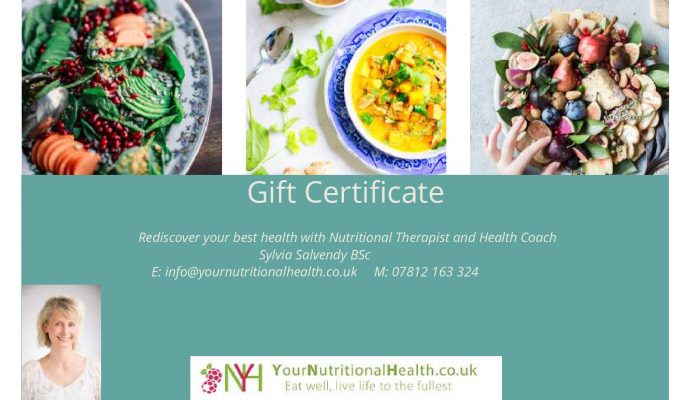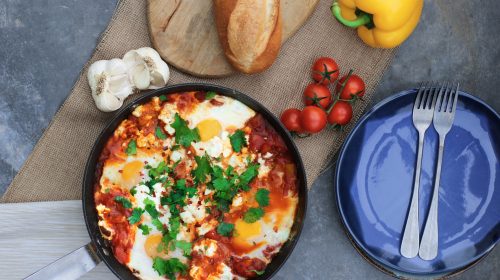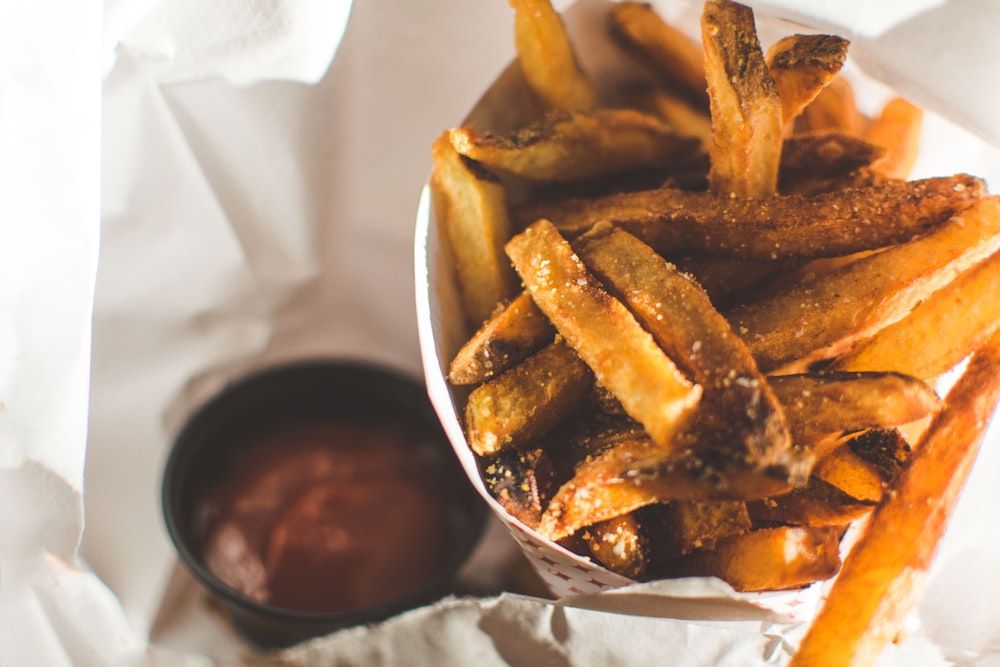Hey, would you like to come to my Christmas party, have a mince pie, my home-made eggnog, warming mulled wine, taste my amazing Yule log…? If everyone else is eating cake and you’re not, you feel deprived. If everyone’s got a drink in hand, you feel like awkward if you don’t and feel like you totally should be too. You feel like if you don’t have all this food and drink, you’re missing out on something (FOMO). And, to make matters worse, the food pushers will insist that you are in fact missing out on something if you aren’t an active food participant.
And you’ll give in because you can’t resist. You’ll feast like you’ll never see another meal, and you’ll consume frightening amounts of festive tipples because otherwise you’ll be missing out on all the fun, right? You’ll worry that this is your only chance to eat turkey stuffing until this time next year so you’ll have to eat it, even though you’re not really hungry! Small wonder. Apparently, the British cram 44% more social occasions into December than any other month.
What is Food FOMO?
FOMO – shorthand for Fear Of Missing Out –is the pervasive and often unjustified apprehension that others might be having way more fun than you, and that you’re somehow being left out of all the said fun. It usually goes along with the desire to stay continually connected with what others are doing. We hate feeling that we aren’t there for something important, something epic, something fun, where memories are made and friendships created. And it reaches its annual high any day now.
But did you know that we also experience food FOMO?
Where Does It Come From?
Food FOMO isn’t our fault as it’s often driven by cultural and biological programming we’re unaware of. Our survival as an individual within a tribe, and thus our survival as a species, once hinged on being “in the know”. To not be aware of a new food source, for example, meant you literally missed out on something that could mean the difference between life and death.
When humans began to create more stable farming communities, being in the know involved paying attention, being in the right places at the right times to get resources and information and engaging in the gossip of the day as it filtered through the community.
We actually have a part of our brain that specializes in sensing if we’re being left out and it activates the stress response. In an attempt to prevent the stress response, which doesn’t feel good at all, some people will (unfortunately) redouble their efforts to not miss out on anything.
Because we are also a species that values and seeks out variety, we feel compelled to partake in it all, lest we miss out on anything. We are also culturally programmed to over-value losses and under-value gains.
Scarcity thoughts lead many of us to have anxiety around food, rather than food being enjoyable. The “lack” mentality also means that we allow food to control us. It’s also very difficult to feel satisfaction when filled with food FOMO because there will be the constant niggling feeling that there’s just not enough to satisfy us. In this way food FOMO leads to eating past the point of what our bodies need or want, causing anxiety, physical ailments and overall malaise, and getting out of tune with what our body really needs.
All of this means we put more importance on the food we may be missing out on, and less on our goals and well-being.
So, FOMO really is not your friend this month (or indeed any month) – especially if you want to maintain your weight, energy, mood and support your digestion over the holidays.
So, how does that festive FOMO usually pan out…
You’re committed to healthy eating during the Festive Season, and you go to just a few buffet parties or events. The food looks delicious, but you are watching your weight, so your deprived mouth can only water. There’s a very subtle fear that you are never going to be able to have any of these delicious treats ever again. The fear of missing out activates your survival instinct to consume everything and anything. And so you go on a binge, and your healthy eating plans are obliterated. The self-recriminations start.
The big question, of course, is what are you are you really missing out on? Nothing. OK, maybe some sweet or high-carb treats, some booze filled evenings and such. But eating and drinking these have a flip side: blood sugar imbalance, energy crashes, irritability, poor sleep, bloating and other digestive issues, and almost certain weight gain (if you consume in excess) – and that’s without mentioning the negative self-talk for having over-indulged.
There’s another thing about this festive FOMO and it’s that it has you giving up taking responsibility for your actions around food and alcohol (you would have been able to resist, right, but it was the party season?)
FIX YOUR FOMO AROUND FOOD
There are several things going on when it comes to food. Your fear of ‘missing out’ on that delicious dessert is the first. But also refusing food (though it should be a basic human right) is mired in emotional meaning both for you and for the host.
The answer is not to find more and more creative ways to say no. If you have to own up to eating healthily around this time or being gluten or dairy free, this seems to compound the original offence of not wanting to eat.
Can you get that it doesn’t mean anything if you don’t want to stuff yourself to the max with the cheese smorgasbord and mince pies? It doesn’t mean anything about your relationship with food, or how you feel about the host. You just don’t want the cheese smorgasbord or mince pies, or not to the extent that you’re so stuffed you feel sick!
Ask yourself what exactly are you missing out on????
Let’s be real, while it’s true that you’re missing out on the opportunity to talk about how good a dessert tastes, sharing a plate of fried mozzarella sticks, or having a third drink, you’re also not battling with your waistline, dealing with fatigue or doubled over with a stomach-ache. So in all reality, what are you missing out on?
Your action plan is this:
- INSTEAD OF FOCUSING ON WHAT YOU CAN’T HAVE, FOCUS ON WHAT YOU CAN HAVE. There are amazing flavours, foods and healthy dishes that will totally satisfy your palate and give you something to talk about with your family and friends.
- TASTE A BIT, BUT DON’T EAT IT ALL.Instead of eating a piece of whatever, eat a bite instead. You’ll be able to talk about it without feeling guilty about it later.
- HAVE AN ACTUAL PLAN Before you go to bed each night, plan out your food for the next day. This is never more true than during the Festive Season, when parties, chocolates, cookies and “treats” are just about everywhere.
- DON’T TRY TO DIET JUST NOW Set a maintenance goal instead. This is much more realistic and it is achievable, even at this time of year. It will also give you the freedom to enjoy yourself without feeling deprived, or that you’ve failed, which in turn means you’re more likely to rebel (and this is code for heading straight for the box of chocolates without a second glance).
- TAKE A BALANCED APPROACH Manage portions. Eat slowly. Savour each mouthful.
- YOU EAT WELL AT OTHER MEALS. Lots of vegetables. Making sure you’re feeling full with smart carbohydrate choices and plenty of protein-rich foods. Then you head to your party, have one or two drinks, a few nibbles and – most of all – enjoy time with the people you love!
- OH, AND DON’T GO TO A PARTY HUNGRY If you do, you’ll be fighting a losing battle. Have a low GI snack before you go – just a little something that includes protein and slow release carbs (cottage cheese or unsweetened nut butter on an oatcake, for example).
- KEEP FAMILY CHOCOLATES OUT OF SIGHT so you’re not tempted to tuck in just because they’re there. Ever heard of the ‘out of sight, out of mind diet’?
- Go from FOMO to JOMO. It’s all right to happily avoid certain activities and have the “Joy Of Missing Out (JOMO).” Learn to get comfortable with the idea of doing what you actually want instead of what you feel like you should do. In the end, you will be much happier if you are following your own urges rather than those of someone else.
- KNOW YOUR PRIORITIES Remember that each person has different priorities in life. Know what’s important to you so you can really analyse every opportunity that comes your way. When you treat everything as a priority, nothing is truly important. Remember that you can do a lot of things in your lifetime, but you certainly cannot do everything. You won’t be having a blast during every single moment of your life, and that is all right.
Try asking yourself these questions next time you’re faced with food FOMO:
- Is this a real or perceived food scarcity?
- Is my body physically hungry right now?
- What is driving my decision to eat right now?
- Is this food readily available to me or is this a special or seasonal food that only comes around once in a while?
- Am I stuck in dieting mentality right now, which is telling me to restrict calories or limit what foods I eat?
- What exactly are you missing?
FIX YOUR FOMO AROUND ALCOHOL
Frequently, party goers who are cautious about their alcohol consumption are viewed with suspicion. You can roll out the usual excuses for abstention: I’ve got a hangover from the party the night before, I’m on antibiotics, I’ve got a really important work thing tomorrow, and the like.
If you want to have a few glasses of wine, have a few glasses of wine. But make that decision inside of what you know to be your social schedule over the entire Christmas period.
How does the amount of socialising stack up against your health goals?
To be clear, you absolutely can honour all your social commitments but, in order not to find yourself tempted by the usual crash diet in January, hear this: it IS possible to go out, have fun, eat well and not have everyone notice you are being ‘healthy’.
If you cut back on the amount you are drinking at social events – even choosing not to drink at some events at all – you can feel the improvements almost immediately. On those nights that you don’t drink at all, you’ll sleep better, wake feeling more refreshed, you’ll have much more energy, and your mood will be better. The impact on your waistline will be positive too – alcohol is a big contributor to belly fat and is brimming with unnecessary calories.
Here are a few suggestions for cutting down – if that’s what you choose to do.
- Decide how much you are going to drink (maximum) before you go out.
- Consider telling someone else who will be there (friend or partner, perhaps), to help keep you accountable.
- Don’t feel pressurised by others. It’s your life and you are the one who makes the decisions.
- Have an excuse ready when you want to give it a miss (remember ‘no, thanks, I’d rather have …..’ is perfectly OK.
So, you see, the fear around missing out is just an illusion. And, actually (in social media terms, certainly) FOMO is a bit old hat. What’s trending right now is JOMO, the joy of missing out. Think what you will be gaining from taking on board some of my tips, enjoying yourself without over eating or drinking too much…









 Those cravings you get for sugary or savoury things, are they all in your head- or is your body trying to tell you something? Some might dismiss a ‘wisdom of the body’ theory as quackery. However, if you think about what biological processes are happening in your body and the factors affecting them, the argument to substantiate a link becomes more compelling. Here’s why.
Those cravings you get for sugary or savoury things, are they all in your head- or is your body trying to tell you something? Some might dismiss a ‘wisdom of the body’ theory as quackery. However, if you think about what biological processes are happening in your body and the factors affecting them, the argument to substantiate a link becomes more compelling. Here’s why.